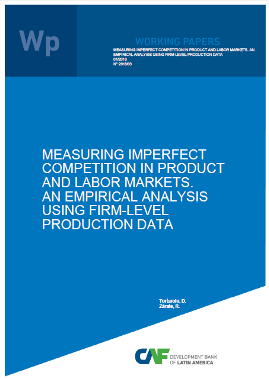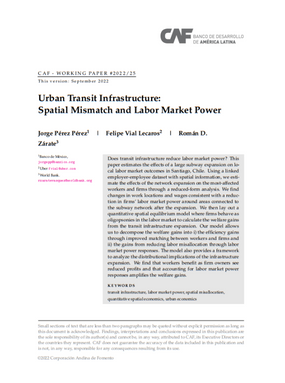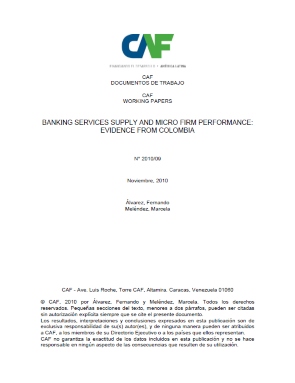Measuring Imperfect Competition in Product and Labor Markets. An Empirical Analysis using Firm-level Production Data
Abstract
In this paper, we develop a simple theoretical model that allows us to disentangle empirically the extent of imperfect competition in product and labor markets using plant-level production data. The model assumes profit-maximizing producers that face upward-sloping labor supply and downward-sloping product demand curves. We derive a reduced-form formula for the ratio between markdowns and markups based on DeLoecker and Warzynski (2012). We use production function estimation techniques to estimate output elasticities and construct a measure of combined market power. We separate product and labor market power by estimating firm-level labor supply elasticities instrumenting wages with intermediate inputs. Our results suggest that both markets exhibit imperfect competition, but variation across industries is driven by the ease of firms to set prices above marginal costs. On average, manufacturing plants charge prices 78% higher than marginal costs, and pay wages 11% less than marginal revenue productivity of labor. We find a negative correlation between product and labor market power and more elastic labor supply curves for unskilled workers. Moreover, we obtain a positive correlation between firms’ product market power and productivity, size and exporter status, and a negative correlation of these measures with labor market power. In the last part, we estimate the relative gains of eliminating market power dispersion on allocative efficiency using the model by Hsieh and Klenow (2009). We find that market power dispersion in product markets is more important on TFP than labor markets, and that the negative correlation between the two measures of market power corrects in 7% the economic distortion derived from market power dispersion.
Subject
Date
2018-01Cite this publication
Belongs to collection
Author
Tortarolo, DarioZarate, Roman D.
Items Relacionados
High-integrity Voluntary Carbon Markets in the Global South: options for Policymakers in Latin America and the Caribbean
Limiting global warming to 1.5°C, in line with the Paris Agreement, requires that global annual greenhouse gas (GHG) emissions be cut by 50 percent of ...
Urban Transit Infrastructure: Spatial Mismatch and Labor Market Power
Does transit infrastructure reduce labor market power? This paper estimates the effects of a large subway expansion on local labor market outcomes in ...
Banking Services Supply and Micro Firm Performance: Evidence from Colombia
This paper uses a dataset of a survey of Colombian micro firms from 2003 to 2007 in combination with data from publicly available sources about banking ...






